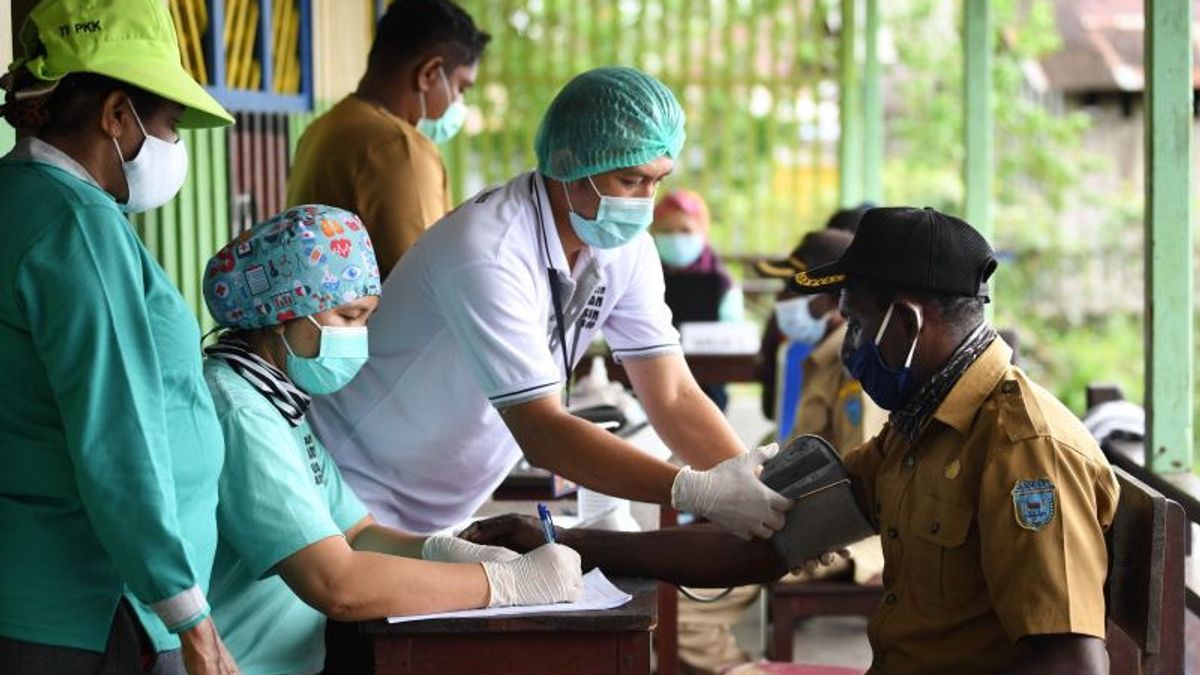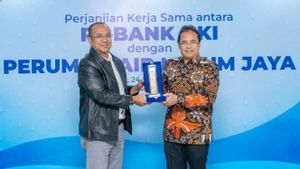JAKARTA - The Ministry of Health (Kemenkes) emphasized that the government will carry out a number of reforms in the medical field in 2023 as domestic COVID-19 is increasingly under control.
Secretary General of the Ministry of Health Kunta Wibawa Dasa Nugraha said the maintained rate of the spread of the pandemic has also slowed down. In his notes, during the last three years the amount of funds prepared in the health sector has increased by two to three times.
It was stated that in 2020 the budget amounted to IDR 102.1 trillion. This value jumped to IDR 201 trillion in 2021 and continued to decrease to IDR 136 trillion in 2022 and IDR 85 trillion in 2023.
"Does it mean that the service continues to decline? No," he said in a written statement on Tuesday, December 20.
According to Kunta, most of the 2020-2022 budget is used for vaccinations, health incentives, and claims for COVID-19 patients.
"In 2023, the Ministry of Health is still monitoring the development of COVID-19 cases to find out whether there are new variants and how the impact will be," he said.
Kunta added, until the end of 2022 Indonesia had injected 450 million doses of the COVID-19 vaccine to the public. The government assesses that the impact of vaccination is increasingly felt with the sloping number of COVID-19 cases.
"In 2023 the government will continue to mitigate the pandemic as well as focus on health transformation," he said.
Kunta detailed that there are six pillars of health transformation, namely the transformation of primary services, the transformation of referral services, the transformation of the health resilience system, the transformation of the health financing system, the transformation of health human resources, and the transformation of health technology.
"Our hope is that by 2024 it will start to appear, everything will start to be achieved, and then we can continue in the next reform," he added.
On the other hand, the Ministry of Health is also committed to continuing to strengthen primary care. This includes encouraging healthy baby programs, stunting prevention, improving hospital quality, and encouraging domestic health production and strengthening posyandu services.
So if all this time posyandu is for toddlers, now we will direct it to the life cycle. Not only for toddlers, but also for teenagers, adults, and the elderly. Because that's the human life cycle. If we talk about stunting, for example, not only does he pass stunting, we will fix it, if he is stunted it can't be repaired," he said.
Kunta emphasized that to become a superior human resources, there are two things that must be considered, namely education and health. The higher education, human resources are becoming more innovative. The better health, human resources are becoming more productive. This statement is in line with the policies prepared by the government in the 2023 State Budget. On the same occasion, the Expert Staff for State Expenditures at the Ministry of Finance Made Arya Wijaya explained, the direction of government policies in the 2023 State Budget is divided into six main priorities. The first is improving the quality of human resources.
"If we look at the explanation, improving the quality of human resources will be pursued through two sectors, namely the education sector and the health sector," explained Made.
Meanwhile, the five other priorities listed in the 2023 State Budget are the acceleration of social protection reform, priority infrastructure development, infrastructure development to grow new economic centers, industrial revitalization, and the establishment of bureaucratic reform and simplification of regulations.
The English, Chinese, Japanese, Arabic, and French versions are automatically generated by the AI. So there may still be inaccuracies in translating, please always see Indonesian as our main language. (system supported by DigitalSiber.id)









